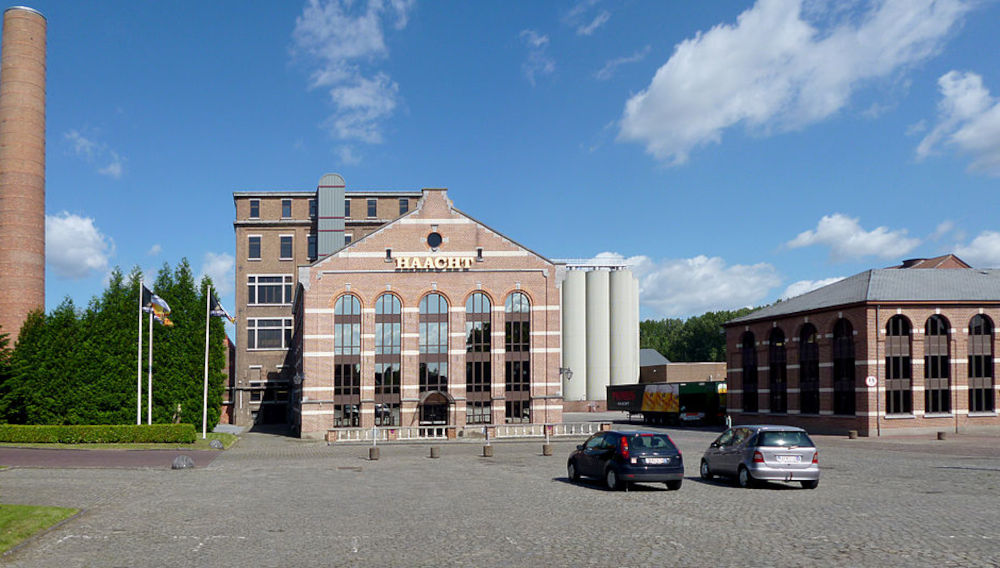Succession planning gone wrong: Haacht Brewery
Belgium | Between the two family branches that own Belgium’s fourth-ranking brewer Haacht, a conflict has erupted over the future course of the business. The criticism centres on Frédéric van der Kelen, 88, the company’s Chairman, who has steered Haacht in one capacity or other for more than 50 years.
Family businesses usually settle their disputes behind closed doors, said the Belgian newspaper De Tijd, but not so at the Van der Kelen family, which controls stock market-listed Co.Br.Ha, the holding for brewer Haacht. The families together own more than 81 percent of the shares.
At the annual shareholders’ meeting on 31 May, a conflict that had been suppressed for years, came into the open.
Chairman under fire
The two sides in the dispute are represented by the four children of Frédéric van der Kelen on one side, and his late brother’s three daughters on the other. The three daughters of Marc van der Kelen, who died in 2015, rebelled against the company’s chairman, their octogenarian and increasingly frail uncle Frédéric.
They refused to grant him discharge, de Tijd reported, which indicates that he has not carried out his duties as chairman properly. The three sisters control more than 30 percent of Co.Br.Ha. One of the sisters’ husbands, François Monfils, who was Haacht’s legal adviser, has since resigned, probably to prevent a conflict of interests.
The sisters’ withholding of discharge is an outright attack on Frédéric himself, who was CEO of the company for 52 years. But only two years ago, Frédéric was side-lined by his own children. His son Boudewijn, 53, became CEO and his father was promoted to chairman until 2026.
Frédéric and Marc are grandsons of Eugène De Ro, who founded the Haacht brewery in 1898. Haacht went public in 1906 and is still listed under the name Brouwerij Handelsmaatschappij or simply: Co.Br.Ha.
Preventing a sale
Observers say that one of the reasons Frédéric has held on to his position as CEO for so long, is that he suspected an imminent breakup and sale of Haacht by his own children and his nieces as soon as he was out through the door.
Haacht is an integrated beer business with a brewery and – probably – a sizeable real estate portfolio, which could bring in far more money if sold than the brewery.
Frédéric has defended Haacht’s independence all his life, turning down offers repeatedly, even once buying out the Van Damme family. The family behind brewer Piedboeuf (Jupiler), which later merged to become Interbrew, managed to buy 35 percent of Haacht in the 1970s. Eventually, Frédéric was able to repurchase their shares.
With Frédéric having become chairman, the younger generation is sniffing a chance to get into the driver’s seat at Haacht and determine its future. One of Marc’s daughters did not beat about the bush at the last shareholders’ meeting.
Push for better governance
According to De Tijd, she said: “We supported our cousin’s nomination as CEO because we want our family group to be able to find a new impetus, to develop a strategy for three to five years, to be able to develop a new commercial dynamism and thus be able to find the place Haacht deserves, given the efforts and investments our fathers have made.”
Whether a strategic review would lead to a sale, as her unveiled threats seem to suggest, Frédéric is right to feel concerned. Not only do the sisters want him replaced by an independent chairman, they also want more independent directors on the board – a request the sisters have made repeatedly over the years. The seven-member board of directors has only two independent members.
Observers commented that Haacht's shareholders’ meeting was a shameful affair: a niece, who basically said “go away now”, whereas Frédéric, using a walker, told the audience “I’ m no longer light on my feet, but I still have a sharp mind.”
Years of struggle
Haacht’s business has been under pressure. Its post-covid recovery has been slower than for other brewers, as Haacht is far more dependent on the on-premise. Hospitality venues represented 63 percent of its total volume sales in 2019, compared with 42 percent for the industry as a whole, Co.Br.Ha. said in its 2019 annual report.
Restrictions on the on-premise in Belgium were only lifted in June 2021. Co.Br.Ha.’s 2021 turnover rose 20 percent over 2020 to reach EUR 80 million (USD 85 million). Its beer and beverage volumes grew 18 percent. However, turnover and volume sales were still 27 and 26 percent below 2021 levels, respectively.
Haacht posted a loss in 2020 and 2021
Co.Br.Ha. posted a net loss of nearly EUR 2 million last year. That is an improvement over the EUR 10.5 million loss in 2020. Operationally, the company was positive. EBITDA came to EUR 11.7 million. Its financial debt dropped by EUR 4.3 million to EUR 16.3 million.
The company does not pay a dividend for the past financial year, which will probably displease the shareholders no end.
Keywords
Belgium business succession company reports company news
Authors
Ina Verstl
Source
BRAUWELT International 2022

